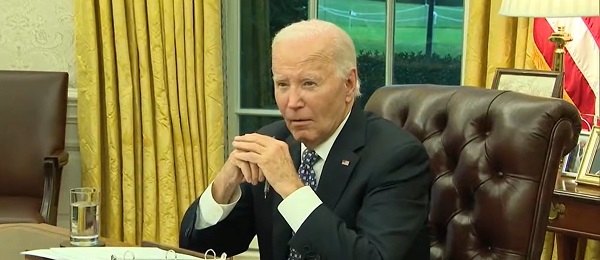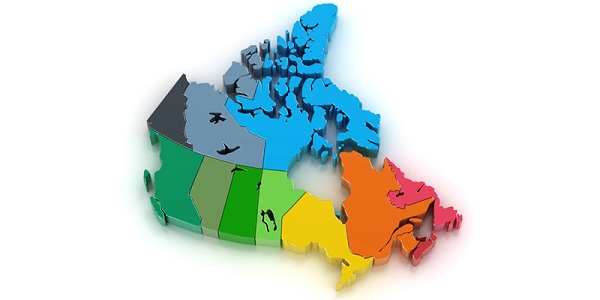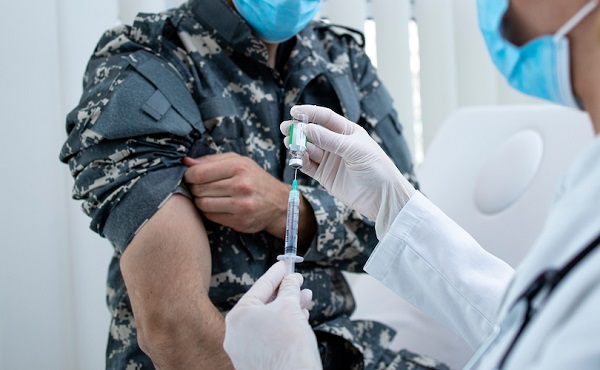Business
Calgary Company Gets Provincial Boost To Revolutionize Pipeline Safety

Hifi Engineering Building New Leak Detection Technology in Calgary.
Huge Potential Implications for Alberta and Canada.
Those who oppose using pipelines to move oil and gas products typically point to the risk of leakage. A Calgary-based start up called Hifi Engineering has set out to revolutionize pipeline safety detection by finding the problems before a leak occurs.
Hifi is hoping to give a big boost to the pipeline industry and now the Province of Alberta has decided to boost Hifi in its efforts. Support through the Alberta Small Business Innovation and Research Initiative (ASBIRI) at Alberta Innovates will help Hifi double its workforce over the next three years.
Hifi plans to develop the new leak detection technology in Alberta and export their product to monitor thousands of kilometers of pipeline worldwide.
Through the ASBIRI program, they are beginning that expansion at TransCanada Corp., Enbridge Inc. and GE Canada, and anticipate a significant increase in future work on new and retrofitted pipelines.
Alberta’s Economic Development Minister says Hifi’s technology will create jobs.
“We’re proud to help homegrown HiFi Engineering bring their new leak-detection technology to some of the biggest players in the oil-and-gas industry. Together, we are growing our economy, creating new jobs and ensuring Alberta continues to be the energy and environmental leader the world needs for the 21st century.”
Hifi’s patented High Fidelity Dynamic Sensing (HDS™) technology will be used to detect various events and leaks with dramatically higher sensitivity than existing leak detection systems can provide – saving oil-and-gas companies money and protecting the environment.
Testing locations include both ends of the Keystone pipeline, which will run from Hardisty, Alberta to Houston, Texas, as well as Enbridge’s new Norlite pipeline, which went into service this year.
“We are very pleased to be part of the ASBIRI program and collaborating with Enbridge and TransCanada. Hifi is ready to showcase our HDS technology performance on these projects to prove our technology is indeed world class, outperforms other alternatives, and is ready to assist the industry in path to improved safety.”
Alberta Innovates invested $2.4 million into the project. The investment from industry partners totals $7.3 million, with a specific requirement for industry to contribute approximately 25 per cent from the design stage onward.
“We are looking forward to seeing Hifi’s technology perform on our Norlite pipeline. We understand this will be one of the longest installations of Hifi technology to-date, and we are looking forward to a successful collaboration with Hifi as they optimize and refine their system for real-world monitoring of pipelines. We are hopeful this technology can provide Enbridge with enhanced leak detection capability and complement performance of our current systems and multi-layered approach to pipeline safety.”
“This is another important step in our ongoing partnership with Enbridge and the Government of Alberta to rigorously test new technology and implement it on our pipelines when it can add another layer to our comprehensive pipeline safety and leak detection program. We look forward to seeing how Hifi’s unique sensing technology performs in real time as we continue to evaluate how it can be deployed most effectively on our pipeline systems in the future.”
Click play on the video below to learn more about this ground breaking “Alberta” technology.
Business
‘Context Of Chemsex’: Biden-Harris Admin Dumps Millions Into Developing Drug-Fueled Gay Sex App

 From the Daily Caller News Foundation
From the Daily Caller News Foundation
By Owen Klinsky
The Biden-Harris administration is spending millions funding a project to advise homosexual men on how to more safely engage in drug-fueled intercourse.
The University of Connecticut (UCONN) in July announced a five-year, $3.4 million grant from the U.S. National Institute of Health (NIH) for Assistant Professor Roman Shrestha to develop his app JomCare — “a smartphone-based just-in-time adaptive intervention aimed at improving access to HIV- and substance use-related harm reduction services for Malaysian GBMSM [gay, bisexual, and other men who have sex with men] engaged in chemsex,” university news website UCONN Today reported. “Chemsex,” according to Northern Irish LGBTQ+ nonprofit the Rainbow Project, is the involvement of drug use in one’s sex life, and typically involves Methamphetamine (crystal meth), Mephedrone (meth), and GHB and GBL (G).
Examples of the app’s use-cases include providing a user who has reported injecting drugs with prompts about ordering an at-home HIV test kit and employing safe drug injection practices, UCONN Today reported. The app is also slated to provide same-day delivery of HIV prevention drug PrEP, HIV self-testing kits and even a mood tracker.
“In Malaysia, our research has indicated that harm reduction needs of GBMSM [gay, bisexual, and other men who have sex with men] engaged in chemsex are not being adequately met,” Shrestha told UCONN Today. “Utilizing smartphone apps and other mHealth tools presents a promising and cost-effective approach to expand access to these services.”
Homosexuality is illegal in Malaysia and is punishable by imprisonment, according to digital LGBTQ+ rights publication Equaldex. Drug use, including of cannabis, is illegal in Malaysia, and drug trafficking can be a capital offense.
The Old Border Czar VS The New Border Czar pic.twitter.com/9Ie8JRsroR
— Daily Caller (@DailyCaller) November 12, 2024
The NIH disbursed $773,845 to Shrestha in July to conduct a 90-day trial testing the efficacy of JomCare among 482 chemsex-involved Malaysian gays. It also provided Shrestha with $191,417 in 2022 to “facilitate access to gender-affirming health care” for transgender women in the country.
“Gender-affirming care” is a euphemism used to describe a wide range of procedures, including sometimes irreversible hormone treatments that can lead to infertility as well as irreversible surgeries like mastectomies, phalloplasties and vaginoplasties.
Shrestha has a track record of researching mobile health (mHealth) initiatives for foreign homosexuals, co-authoring a 2024 study entitled, “Preferences for mHealth Intervention to Address Mental Health Challenges Among Men Who Have Sex With Men in Nepal.”
The proliferation of LGBT rights has been a “foreign policy priority” under the Biden-Harris administration, a State Department spokesperson previously told the Daily Caller News Foundation, with President Joe Biden instructing federal government department heads to “to advance the human rights of LGBTQI+ persons.”
“Around the globe, including here at home, brave lesbian, gay, bisexual, transgender, queer, and intersex (LGBTQI+) activists are fighting for equal protection under the law, freedom from violence, and recognition of their fundamental human rights,” a 2021 White House memorandum states. “The United States belongs at the forefront of this struggle — speaking out and standing strong for our most dearly held values.”
President-elect Donald Trump announced on Nov. 12 that Elon Musk and Vivek Ramaswamy would collaborate to establish a new Department of Government Efficiency (DOGE), with Musk claiming the agency would feature a leaderboard for the “most insanely dumb spending of your tax dollars.” Some DOGE cuts could come from LGBTQ+ programs, such as a grant from the United States Agency for International Development to perform sex changes in Guatemala and State Department funding for the showing of a play in North Macedonia entitled, “Angels in America: A Gay Fantasia on National Themes.”
“The woke mind virus consists of creating very, very divisive identity politics…[that] amplifies racism; amplifies, frankly, sexism; and all of the -isms while claiming to do the opposite,” Musk said at an event in Italy in December 2023, according to The Wall Street Journal. “It actually divides people and makes them hate each other and hate themselves.”
Shrestha and the NIH did not respond to requests for comment. When reached for comment, a UCONN spokeswoman told the Daily Caller News Foundation that, “specific questions about the grant and the decision to award it to our faculty member should be directed to the NIH, since that’s the funding agency.”
Business
Broken ‘equalization’ program bad for all provinces

From the Fraser Institute
By Alex Whalen and Tegan Hill
Back in the summer at a meeting in Halifax, several provincial premiers discussed a lawsuit meant to force the federal government to make changes to Canada’s equalization program. The suit—filed by Newfoundland and Labrador and backed by British Columbia, Saskatchewan and Alberta—effectively argues that the current formula isn’t fair. But while the question of “fairness” can be subjective, its clear the equalization program is broken.
In theory, the program equalizes the ability of provinces to deliver reasonably comparable services at a reasonably comparable level of taxation. Any province’s ability to pay is based on its “fiscal capacity”—that is, its ability to raise revenue.
This year, equalization payments will total a projected $25.3 billion with all provinces except B.C., Alberta and Saskatchewan to receive some money. Whether due to higher incomes, higher employment or other factors, these three provinces have a greater ability to collect government revenue so they will not receive equalization.
However, contrary to the intent of the program, as recently as 2021, equalization program costs increased despite a decline in the fiscal capacity of oil-producing provinces such as Alberta, Saskatchewan, and Newfoundland and Labrador. In other words, the fiscal capacity gap among provinces was shrinking, yet recipient provinces still received a larger equalization payment.
Why? Because a “fixed-growth rule,” introduced by the Harper government in 2009, ensures that payments grow roughly in line with the economy—even if the gap between richer and poorer provinces shrinks. The result? Total equalization payments (before adjusting for inflation) increased by 19 per cent between 2015/16 and 2020/21 despite the gap in fiscal capacities between provinces shrinking during this time.
Moreover, the structure of the equalization program is also causing problems, even for recipient provinces, because it generates strong disincentives to natural resource development and the resulting economic growth because the program “claws back” equalization dollars when provinces raise revenue from natural resource development. Despite some changes to reduce this problem, one study estimated that a recipient province wishing to increase its natural resource revenues by a modest 10 per cent could face up to a 97 per cent claw back in equalization payments.
Put simply, provinces that generally do not receive equalization such as Alberta, B.C. and Saskatchewan have been punished for developing their resources, whereas recipient provinces such as Quebec and in the Maritimes have been rewarded for not developing theirs.
Finally, the current program design also encourages recipient provinces to maintain high personal and business income tax rates. While higher tax rates can reduce the incentive to work, invest and be productive, they also raise the national standard average tax rate, which is used in the equalization allocation formula. Therefore, provinces are incentivized to maintain high and economically damaging tax rates to maximize equalization payments.
Unless premiers push for reforms that will improve economic incentives and contain program costs, all provinces—recipient and non-recipient—will suffer the consequences.
Authors:
-

 ESG2 days ago
ESG2 days agoCan’t afford Rent? Groceries for your kids? Trudeau says suck it up and pay the tax!
-

 John Stossel2 days ago
John Stossel2 days agoGreen Energy Needs Minerals, Yet America Blocks New Mines
-

 Daily Caller2 days ago
Daily Caller2 days agoLos Angeles Passes ‘Sanctuary City’ Ordinance In Wake Of Trump’s Deportation Plan
-

 Alberta2 days ago
Alberta2 days agoProvince considering new Red Deer River reservoir east of Red Deer
-

 Addictions2 days ago
Addictions2 days agoBC Addictions Expert Questions Ties Between Safer Supply Advocates and For-Profit Companies
-

 Aristotle Foundation2 days ago
Aristotle Foundation2 days agoToronto cancels history, again: The irony and injustice of renaming Yonge-Dundas Square to Sankofa Square
-

 conflict1 day ago
conflict1 day agoUS and UK authorize missile strikes into Russia, but are we really in danger of World War III?
-

 armed forces1 day ago
armed forces1 day agoJudge dismisses Canadian military personnel’s lawsuit against COVID shot mandate








